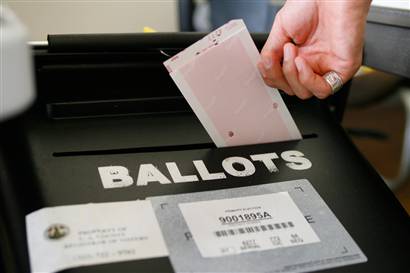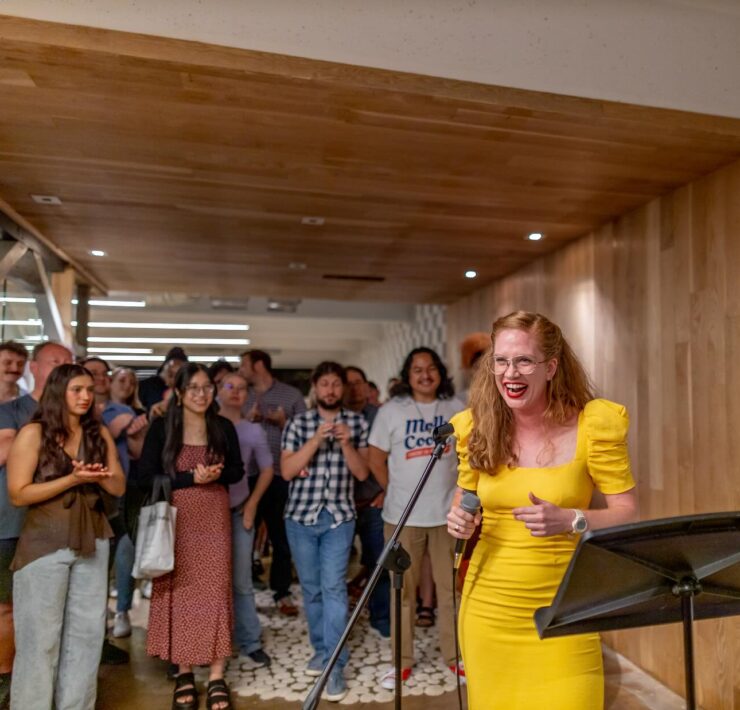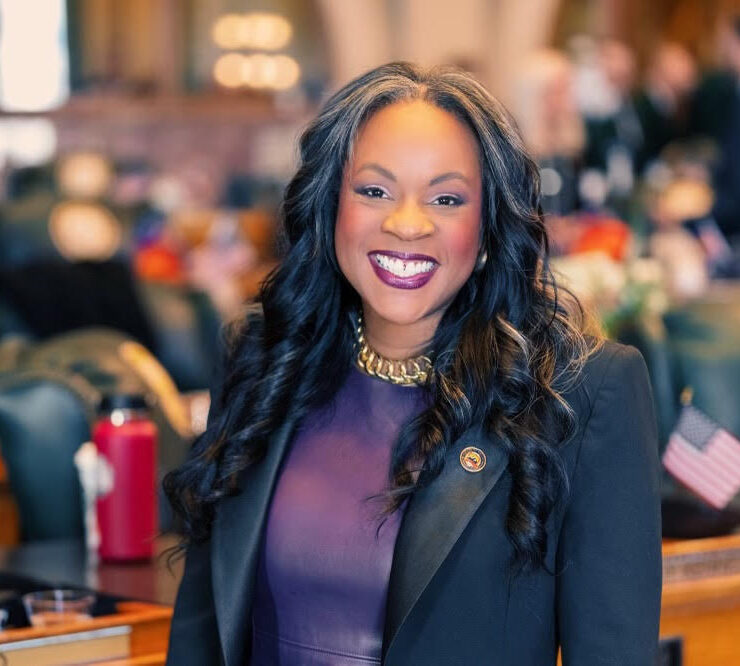Measuring up: Ballot measures and initiatives on your Nov. 2012 ballot

Amendment 64: Regulate and tax marijuana like alcohol
Amendment 64 would make Colorado the first state to allow marijuana to be grown and sold for non-medicinal purposes, allowing people over the age of 21 to have and use it under state law, which proponents explain as treating marijuana like alcohol. The state legislature would be charged with creating rules for the new marijuana industry that would remain separate from medicinal marijuana. The first $40 million taxes on recreational marijuana would be required to pay for building public schools. Growers or sellers would need a license from the state, and cities and counties could choose to ban those establishments within their limits. The amendment would also allow industrial hemp farms.
Amendment 64 wouldn’t change federal laws banning marijuana, and it’s unclear if or how the federal government would intervene or step up its enforcement in Colorado if the amendment passes.
Proponents say in addition to reducing burdens on police and jails dealing with nonviolent drug offenders, the measure would create a legitimate industry that is more responsible and able to keep marijuana away from children. Opponents dispute those claims, and believe legalization would cause drug use to spike. Still, an out-of-state pollster, SurveyUSA, polled Coloradans and found 51 percent of respondents favored the measure – revealing a tight contest that could go either way.
A YES vote is to create laws for adults over 21 to use marijuana recreationally, taxing it to pay for public school construction, and to allow farming industrial hemp under state law.
A NO vote keeps Colorado laws on marijuana and hemp the same.
Amendment 64: Limit corporate spending on elections
Amendment 65 does something unusual: It amends Colorado’s Constitution to ask state legislators and Colorado’s U.S. Representatives to support an amendment of the U.S. Constitution, but whether elected officials do so is up to them. The U.S. Constitutional amendment would allow limits on corporate spending on elections – a grassroots response to a controversial U.S. Supreme Court ruling.
The 2010 Supreme Court decision, citizens united, split the Court’s liberals and conservatives 5-4 to strike down federal limits on how much corporations and unions can spend influencing elections. To the ordinary American, the most apparent result is a spike in TV commercials against a candidate or issue that don’t actually come from the opposing candidate. To a politician the result was the possibility of battling – or benefiting from – a lot of political messaging from groups they win favor with, or offend, through their votes or policies. The ruling cited First Amendment protection from laws restricting political speech – while critics of the ruling say those rights should be for individuals, not corporations, and say the ruling tilts the political playing field toward the powerful.
The ruling could only be overridden by a future Supreme Court – with members appointed by a future president – or by a constitutional amendment. Amendment 65, if passed, would do nothing more than send a message to lawmakers, but with a similar measure on the ballot in Montana and plans for more in other states, advocates hope it will be difficult to ignore.
A YES vote symbolically supports a U.S. Constitutional Amendment that would allow Congress to restrict corporate spending on elections.
A NO vote is to reject the proposal.
Denver Measure 2A (Denver only): Denver City Property Tax Refund Elimination Question
Colorado voters in 1992 passed the Taxpayers Bill Of Rights into the state’s Constitution. TABOR bans the state or local governments from raising a tax rate without a vote of the people, and says that if the tax rate remains the same but collections increase due to a growing economy, governments must refund gains on the previous year beyond inflation plus population growth.
That means a recession – which normally dents tax revenues – can permanently reduce revenues because each year’s limits are calculated by the previous year’s revenues. When the post-recession economy expands to normal, revenues stay at the recession level plus slow increases based on inflation plus population growth unless voters agree to skip their refund.
Voters in most cities and counties have scrapped at least some TABOR limits. Denver Measure 2A, sent to voters by an 11-1 City Council vote, would uphold Denver’s current property tax rate to let Denver use an estimated $68 million per year through 2014 rather than refund it. Proponents estimate it would eliminate Denver’s budget deficit and pay for more police and firefighters, resurface streets, restore Denver libraries to being open full time and restore youth programs. Opponents warn that if property values spike more than expected, the current tax rate will raise more revenue than expected too, and the city would keep it.
A YES vote is for the City and County of Denver to use, until 2014, the full property tax revenue it collects at the existing tax rate, some of which currently must be returned to owners of property in Denver.
A NO vote is for the City and County of Denver to be required to continue returning some collected property tax revenue to owners of property in Denver.
Denver Measure 3A: Denver Public Schools Mill Levy Override (Denver only)
Measure 3A would increase Denver property taxes to raise $49 million more per year for Denver Public Schools’ art and music programs, classroom computers, tutors and more preschool and full day kindergarten classes. (Note: The Denver Public Schools tax district and budget is separate from Denver’s municipal government.) The measure seeks to offset decreases in state funding for education.
A YES vote is to fund education programs in Denver Public Schools by $49 million more per year through a property tax increase.
A NO vote is to reject the proposal.
Denver Measure 3B: Denver Public Schools Bond Issue (Denver only)
3B would loan Denver Public Schools $466 million for construction by selling bonds, increasing property taxes to raise $47.9 million per year until the loan is paid. More than half of the funds would upgrade old buildings for sustainability, safety and disability access. About a third would build new schools in growing neighborhoods such as Stapleton, the rest funding instruction and technology.
Supporters note that Denver schools, with some of the oldest school buildings in the state, grew by more than 10,000 students over the last five years while state funding decreased. 3B opponents – some of whom support 3A – say the measure comes too soon after a similar 2008 measure and costs too much.
A YES vote is to loan $466 million to Denver school construction work with bonds, paying them off by $47.9 million per year through a property tax increase.
A NO vote is to reject the proposal.
PLUS:
Meet Colorado’s 8 out LGBT candidates for 2012 state legislative races
Out Front endorsements for the November 2012 election
LGBT and allied organizations work to get out Colorado’s vote
What's Your Reaction?
Founded in 1976, Out Front is the largest LGBTQ news organization in the Rocky Mountains. "Like" Out Front on Facebook: facebook.com/outfrontcolorado, and follow us on Twitter: @outfrontco.










